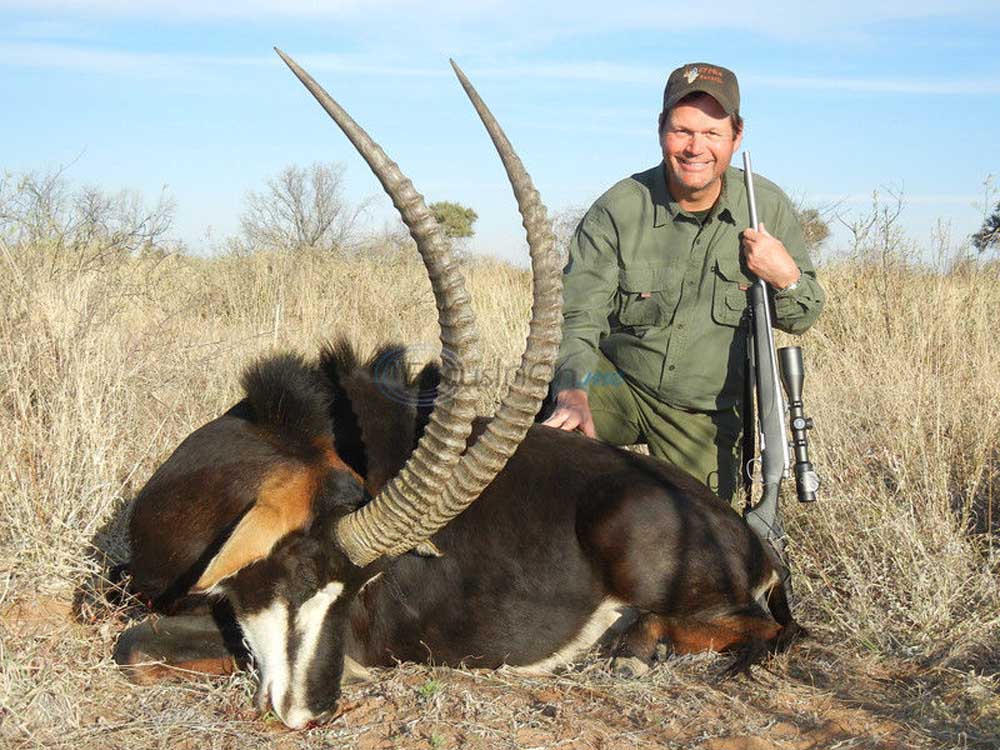Open For Business: Despite Concerns, Bans Hunters Still Traveling To Africa
Published 9:25 pm Saturday, February 15, 2014

- Courtesy Tyler hunters like Bill Blomdahl, who took this sable last summer, are among the East Texas clients who have hunted South Africa with Hannes Els.
Hunting Africa in the 21st Century has become an odd mix of wildlife and politics.
The result has created a patchwork of countries that have become completely or partially closed to hunters, others that are open, but considered risky options for foreigners and those where the welcome mat is out and it is business as usual.
Trending
The situation has created concern for safari veterans and among those looking to hunt the continent for the first time.
The latest to close its borders to hunting is Botswana, a country rich in game.
“Botswana has closed most all of its big game areas, more than 80 percent of them,” said Hannes Els, owner of Limcroma Safaris in South Africa.
Botswana has the continent’s largest elephant population and there is already concern over their future.
“The best means of poacher control is the hunting community. The photo people don’t understand poacher control. What a lot of people don’t understand is the revenue for controlling poaching that comes from hunting, and the conservation,” Els explained.
It is winter in Africa and outfitters like Els are in the United States working hunting conventions in Dallas, Houston and Las Vegas. He made a stop in Tyler Tuesday at a party hosted by previous clients.
Trending
Els said because of the politics around Africa that hunters are going to find the safest hunting opportunities in the southern-most portion of the continent, starting with South Africa.
In recent years he has seen an increase in interest in hunting South Africa. Some of that is coming from hunters pushed out or unwilling to return to other counties.
Unlike some of the other nations where fences between hunting concessions do not exist, South Africa hunts have more in common with Texas hunting, but on a much larger scale.
Els describes it as the perfect place to get a taste of Africa for a first time hunter. There are also those who chose to never hunt anywhere else.
A third-generation outfitter and professional hunter, Els family owns 13,000 acres, but leases another 187,000 in the Limpopo Valley on the border with Botswana. Although the majority of his hunts are for plains game, Els is able to offer a limited African Big Five experience.
Still, South Africa is not without its problems. Els said he wouldn’t recommend tourists to venture into portions of Johannesburg after dark much like people here would recommend against visiting parts of Houston or Dallas.
He said the advantage of hunting South Africa is that it can be a direct flight from the U.S., and doesn’t require a connection from Johannesburg to the next stop.
What happens after a hunter’s plane lands is something prospective hunters should ask an outfitter.
“What I tell people is that once you put your feet down in South Africa you are in my control. I take care of all the arrangements getting you in and getting you and your game out,” Els said.
He added he also has a VIP service to help the hunter clear his gun through customs both directions.
After South Africa the list of low risk nations is small. Els said he believes Namibia followed by Tanzania would be the next two best options. Mozambique has also been considered a safe destination, but Els said he has recently heard of some coastal tourists being robbed in that east African nation. It apparently hasn’t been an issue in hunting camps.
Els calls other countries such as Uganda and the Central African Republic very unstable.
Along with the big scale changes in Africa, the outfitter also said there is a change in who is coming to hunt.
“South Africa has become a very popular destination for couples and families. Ten years ago we had mostly single hunters and maybe 20-25 percent couples and families. Today I would say it is 20-25 percent single hunters,” Els said.
He added that while outfitters have special packages for non-hunting wives, he finds more are coming to hunt instead of the spa.
While the idea of hunting a fenced ranch like those in Africa may not be attractive to some hunters, there is one thing to take into consideration. Els explained, for example, that an elephant hunt would be on a property that is at least 25,000 acres in size. That represents an area about three-quarters the size of the entire Tyler city limits.
He added that elephants, along with leopards, lions and other species aren’t released in a canned hunt scenario, but have been reintroduced into the area through the years.
Have a comment or opinion on this story? Contact outdoor writer Steve Knight by email at outdoor@tylerpaper.com. Follow Steve Knight on Facebook at TylerPaper Outdoors and on Twitter @tyleroutdoor.






